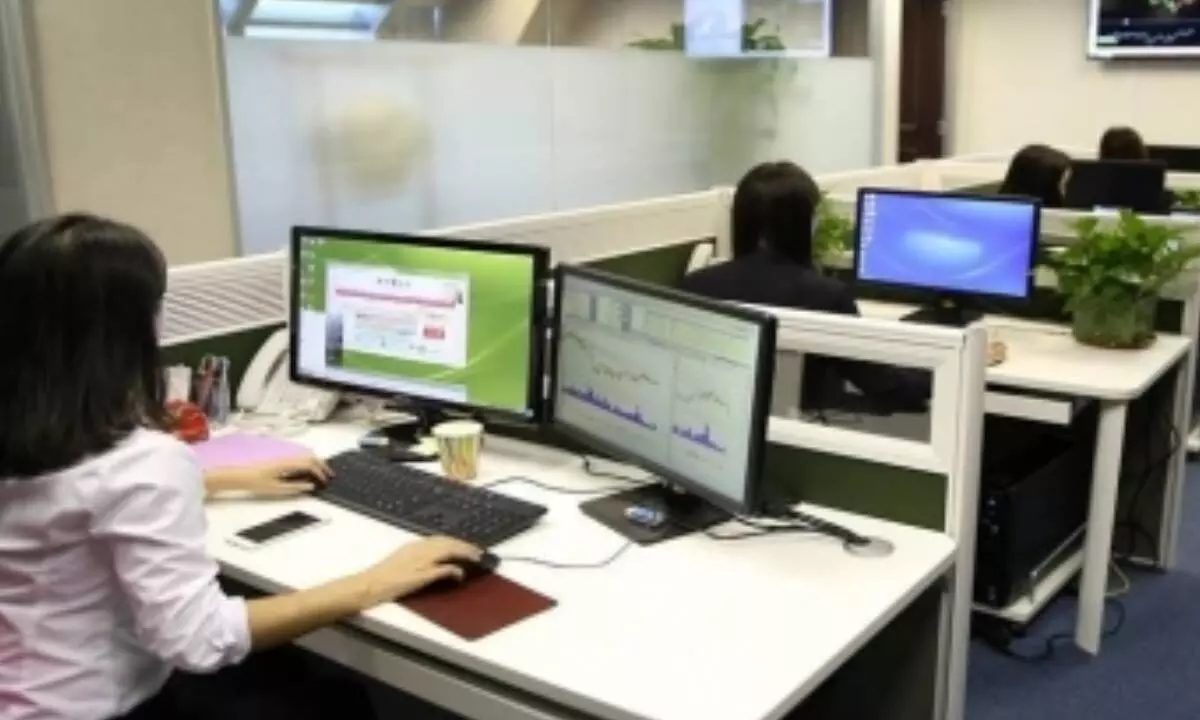Indian Tech Jobs in U.S. at Risk? H-1B Approvals Fall Sharply
Indian IT firms reduce H-1B dependence. What does the shift mean for Indian tech jobs in the U.S. and future visa approvals?
image for illustrative purpose

India’s largest software exporters are steadily moving away from heavy dependence on H-1B visas for U.S. hiring, according to data reviewed from U.S. immigration authorities.
The shift highlights how Tata Consultancy Services, Infosys, HCL Technologies, Wipro, Tech Mahindra, and LTIMindtree are changing their global workforce strategies by relying more on local recruitment in America, expanding nearshore centers, and integrating automation into delivery models.
The U.S. Citizenship and Immigration Services (USCIS) announced in May that 120,141 petitions were chosen for H-1B visas for fiscal year 2026 — the lowest selection count since 2021. The number rekindled debate in Washington, particularly among backers of former President Donald Trump, who argue that the programme displaces U.S. workers.
Commerce Secretary Howard Lutnick and Florida Governor Ron DeSantis have both called for the programme to be rolled back. Activist Laura Loomer also criticized the approvals, saying U.S. jobs were being replaced.
Despite the cuts, Indian nationals still account for nearly three-fourths of all approvals. For FY 2025, about 135,000 individuals were selected from more than 470,000 applications, with Indians forming the bulk of the pool.
* The six biggest Indian IT employers have reduced H-1B filings by 46 percent over the past five years, USCIS data showed.
* TCS was an exception in FY25, sponsoring 5,505 visas, the second-highest after Amazon.
* Accenture, Capgemini, Cognizant, and IBM reported a similar 44 percent fall in applications during the same period.
* U.S. technology firms including Amazon, Microsoft, Apple, Google, and Meta continue to rank among the top sponsors of Indian talent.
Research organizations such as OpenAI and Anthropic have joined the list of significant sponsors. OpenAI filed 76 applications in FY25, compared with 11 in FY21. Anthropic applied for 41 visas in FY25, according to USCIS.
The decline in visa dependence by Indian IT reflects rising political pressure in the United States to prioritize domestic workers, coupled with business model changes triggered by artificial intelligence. While Indian firms scale down visa sponsorships, U.S. companies are bringing more Indian engineers onsite to accelerate AI development.
From September 2025, several countries will implement new visa rules:
* United States: Nearly all non-immigrant visa categories, including H-1B and F-1, will require in-person interviews. Exemptions for most renewals will end. The Department of Homeland Security will also enforce fixed stay periods instead of “duration of status.”
* United Kingdom: New restrictions will govern asylum family reunifications, introducing income and English language requirements.
* New Zealand: Two new temporary visas — the Global Workforce Seasonal Visa and the Peak Seasonal Visa — will open, along with relaxed property rules for investors.
* Australia: Beginning Sept. 13, the Skills in Demand visa will lower the English language requirement to vocational level to address worker shortages.
Analysts say the reduced reliance on H-1B visas marks a structural adjustment in the Indian IT industry, but U.S. market access remains critical for its long-term growth.

